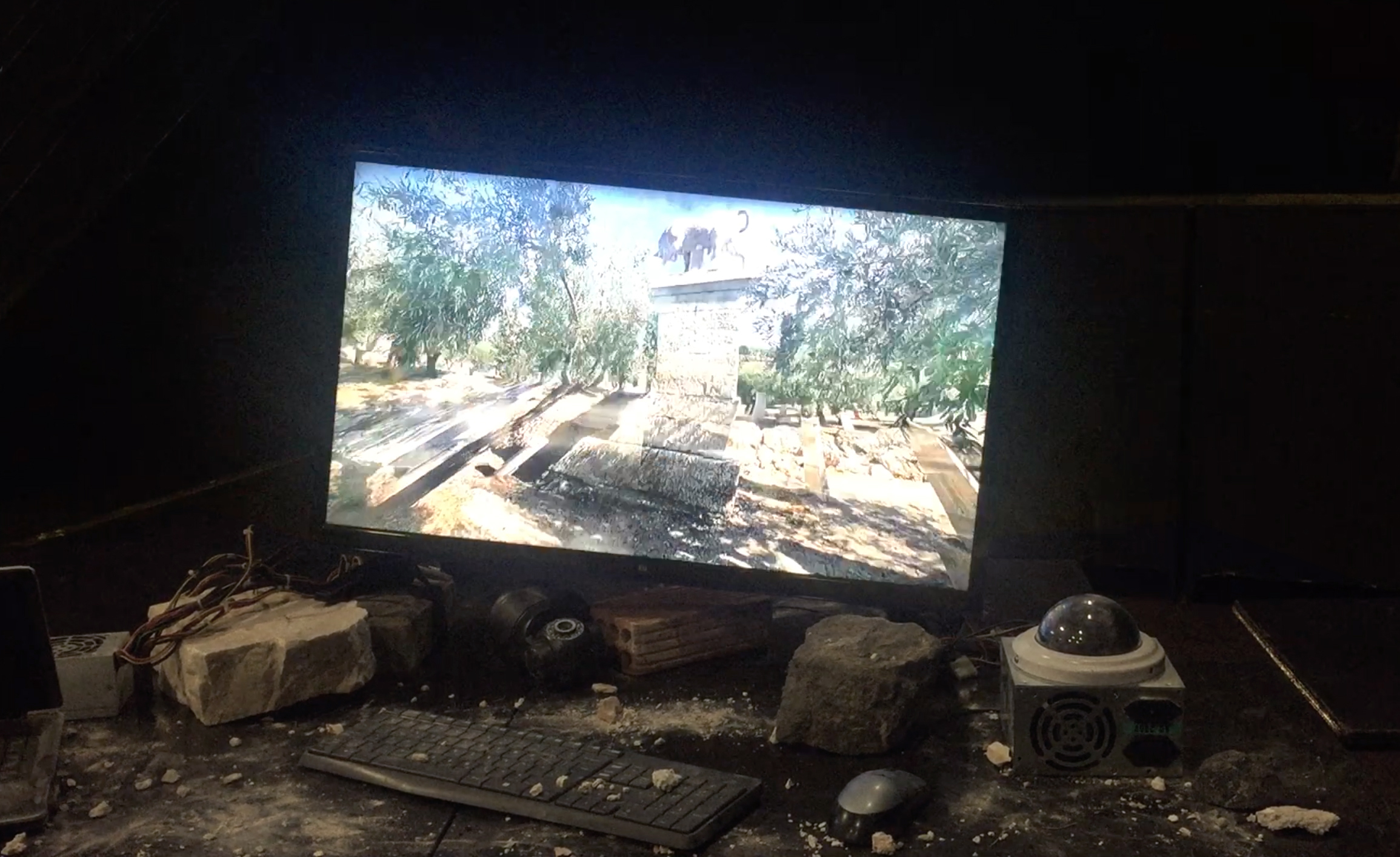ELECTRIC DREAMS
2019
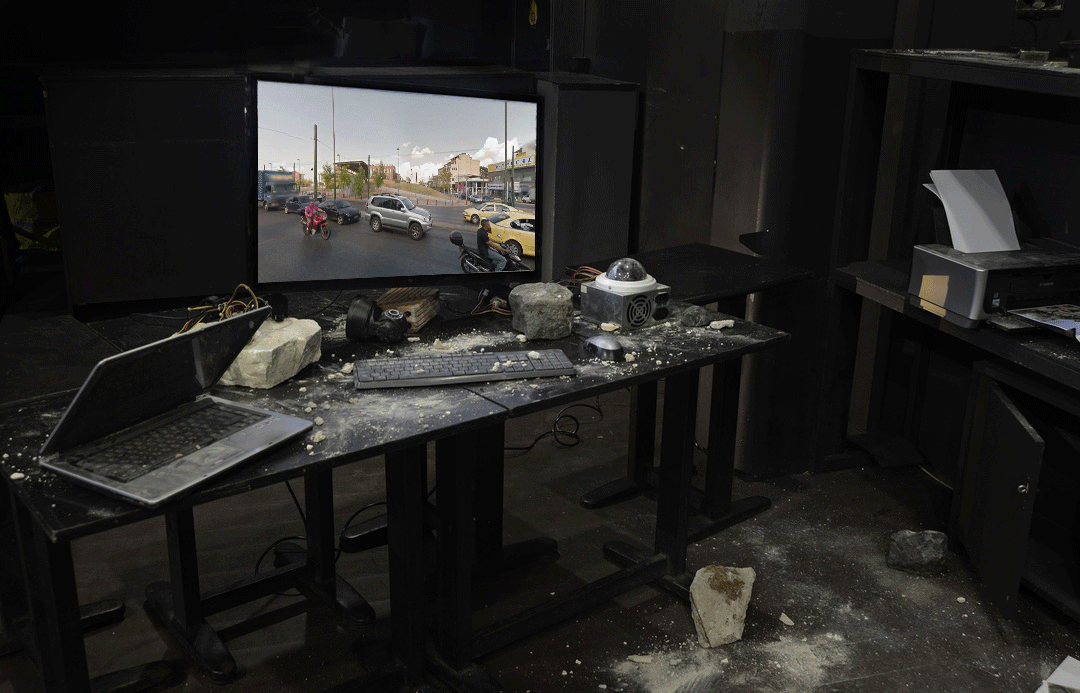
Electric Dreams is a site-specific installation reflecting
on how new technologies apprehend and transform the urban environment. In the
near future, a computer, along with a printer and other peripherals, is found
‘alive’ in an abandoned, wrecked office space. The computer seems to have
developed a kind of artificial intelligence in its effort to escape years of
boredom and loneliness. With the use of Google street view, it sets off to
explore its surroundings and to discover what lies outside its dark and cold room.
As it navigates through parts of the city, it takes photographs i.e. screenshots,
then copies and repositions elements as to final construct its very own masterpiece.
A machine’s (urban) experience
can seem indeed limited, or even nonexistent, to that of humans, yet its
learning ability, when it comes to speed, storage and information access, is massive
compared to ours, as it is its capacity of multiple simultaneous interconnections.
Do we really know how a machine is capable of using the endless data that is
receiving? The computer-flaneur seems to be limited to the information of Google
Street View, but perhaps this is not the case.
Perhaps in its effort to make
sense of the multifaceted layers of the city, it reaches out to other facts and
figures: It reads through texts and manuscripts, searches historical and philosophical
writings, examines old photographs and sound recordings, various Youtube videos
and movies.
‘Electric Dreams’
reflects on advanced technology as a means of understanding the
world and the places we inhabit, wondering on the use of machine learning and
the potential of AI. Narrating probably one of Sci-Fi’s favourite stories, that
machines can and will eventually develop Emotional Intelligence, which will render
them more human than we are.

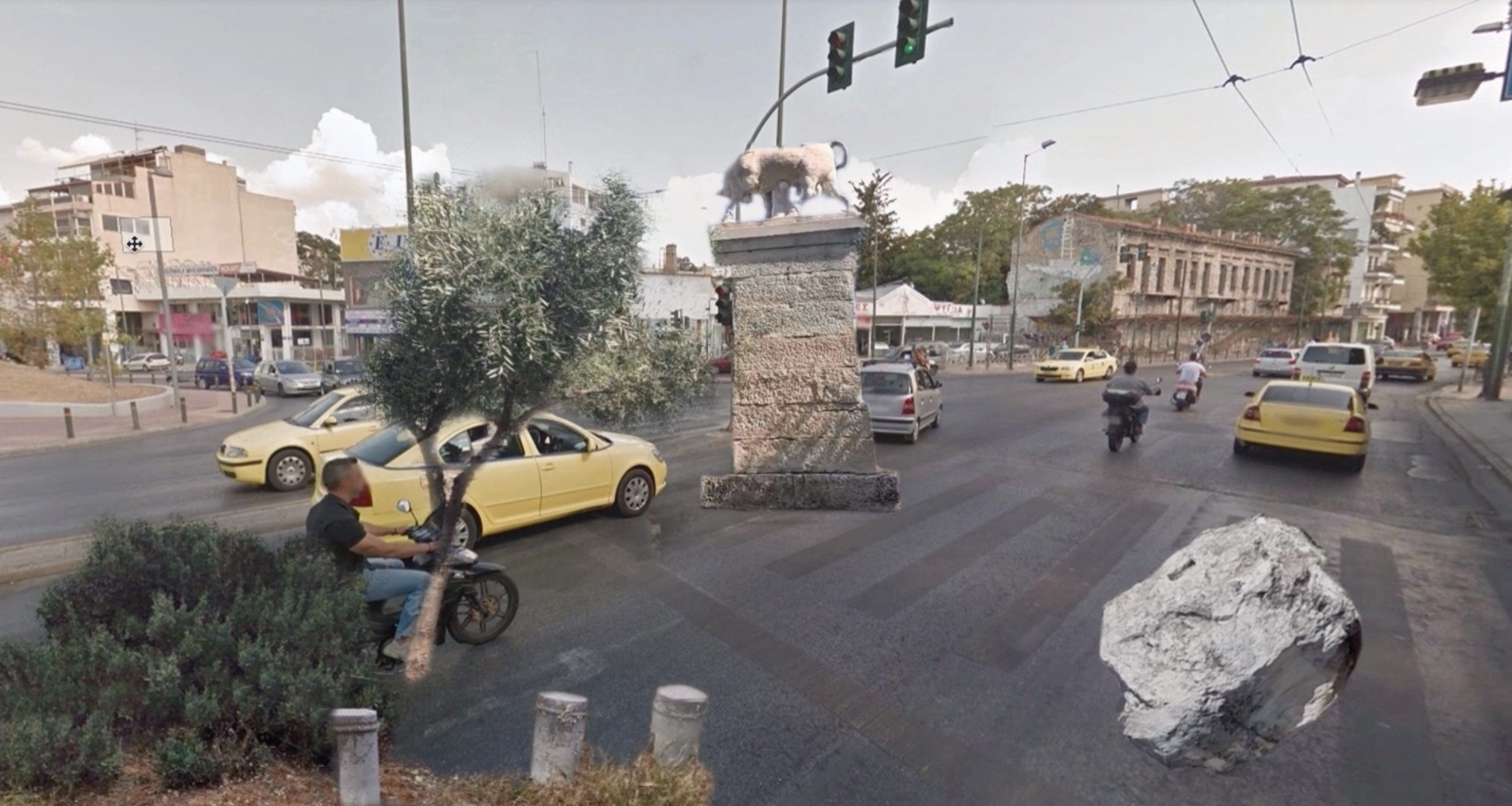
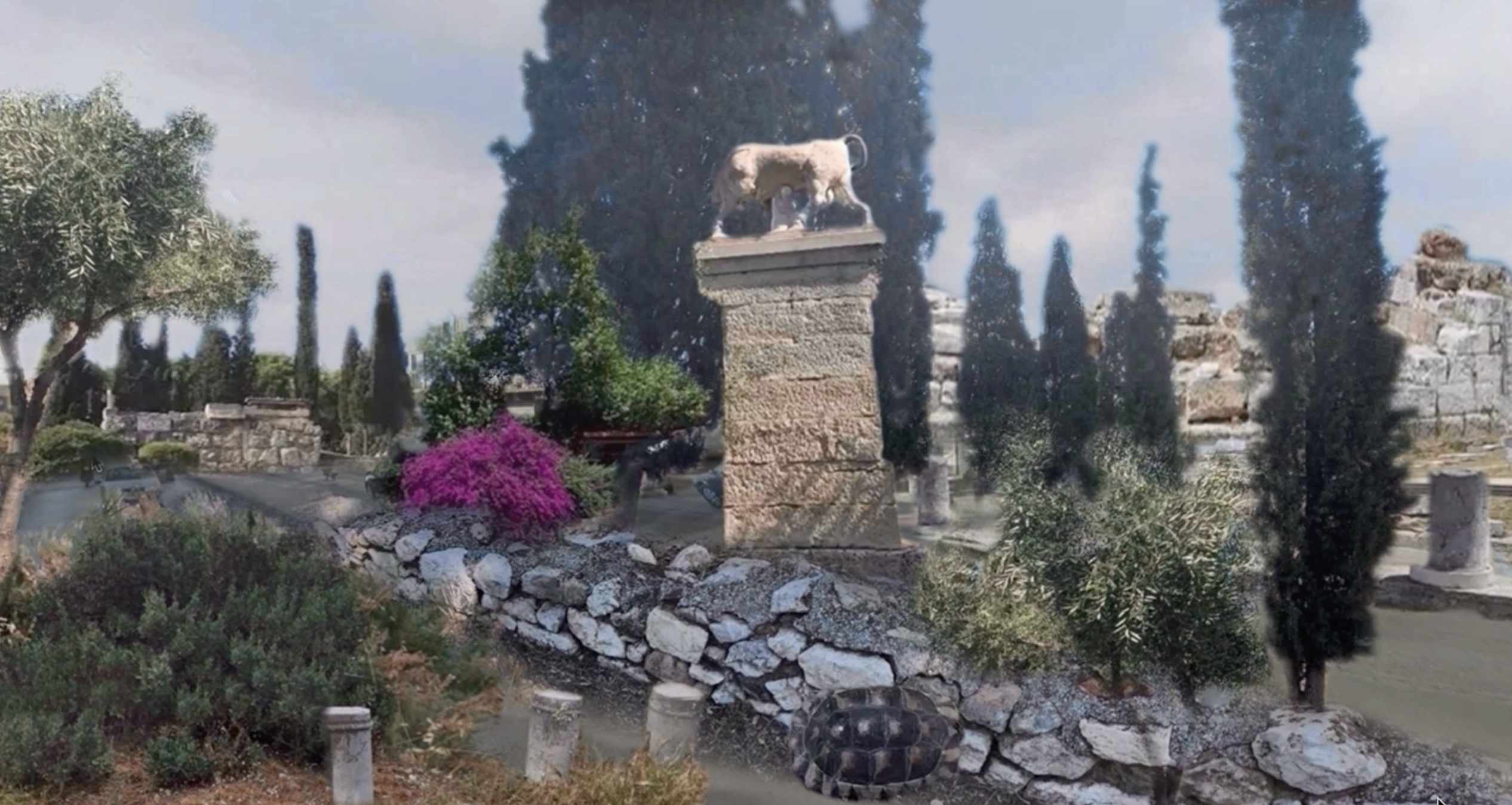
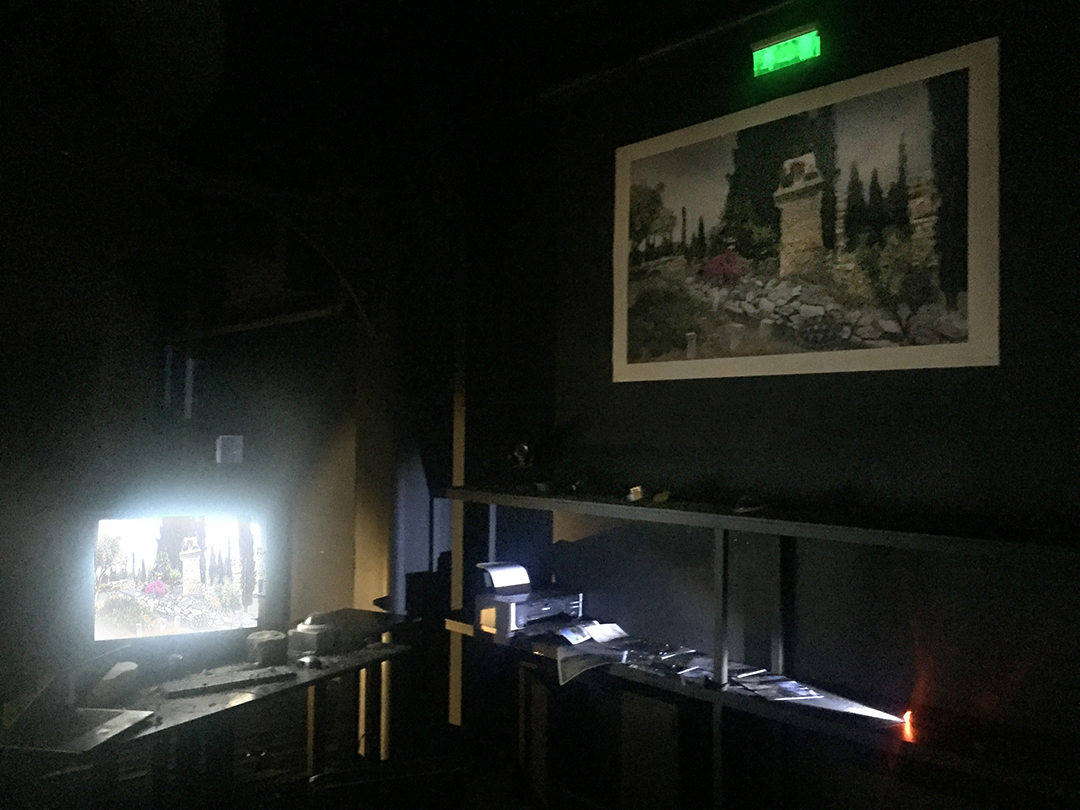
Electric Dreams (2019) by Zoe Hatziyannaki is a site and context responsive installation reflecting on a future scenario where technology has obscurely reached a more advanced stage. A screen, a printer and other peripherals take the shape of a curious apparatus functioning on a self-programming and self-operating system. Artificial intelligence and its engagement with the advancement of technology lies within the artist’s immediate interests. The integration of simulated intelligence with emotional intelligence could be a credible plot changing the way we see technology today and how we interact with it.
The machine presented by Hatziyannaki belongs to a framework of a future reality, perhaps not so far away. It is able to enact its very own logic and reasoning and concomitantly perform a task while wielding its own emotional artificial brainpower. We witness a device analysing the topographical coordinates and other constituents with algorithmic and computational procedures, it automatically generates an image that for itself this represents the ultimate exquisiteness of aesthetics for such scenery.
With perspicuous allusions to the role of technological means over contemporary art practices, Hatziyannaki examines the debate on what is art today and to what extent technology is acceptable to be entangled with the production of an artwork. She challenges the belief that technology can arise as an obstacle for artistic expression as opposed to the fact that it is widely used to produce an artwork. The prospect of a self-thinking and feeling appliance might still be far away yet the sense of a manmade machine sharing mutual feelings with us may seem paradoxically comforting, especially when it comes to postulating a state of future dystopia on our planet.
Text by Kostas Prapoglou in the catalogue of +9 exhibition.
